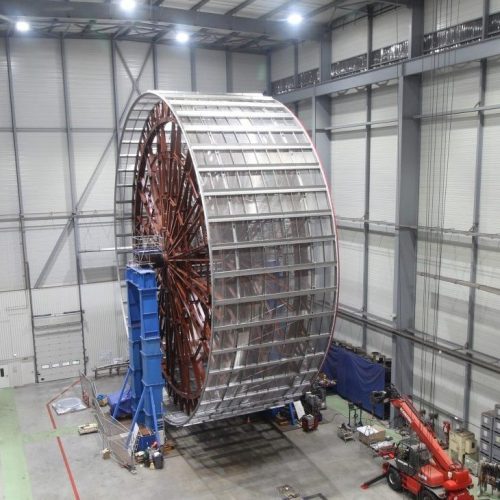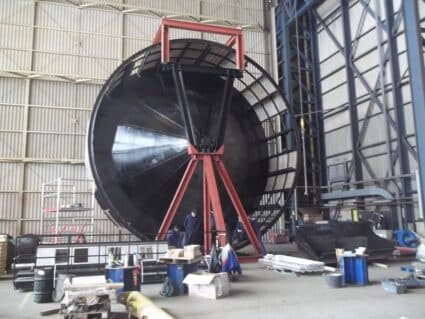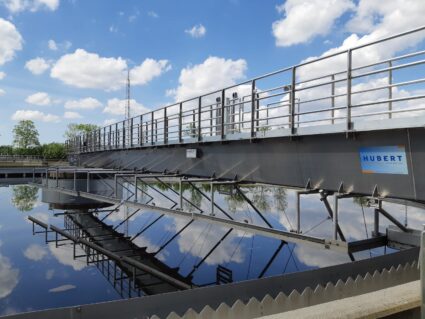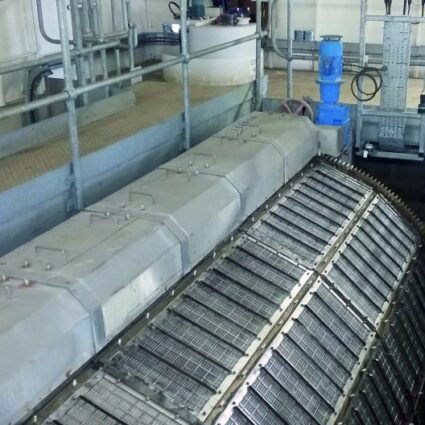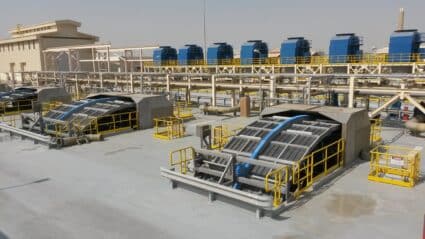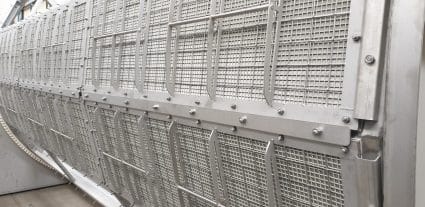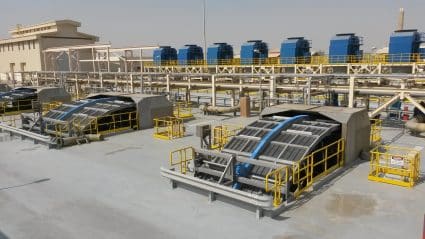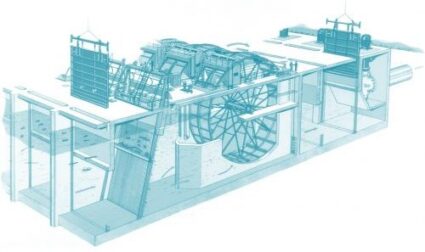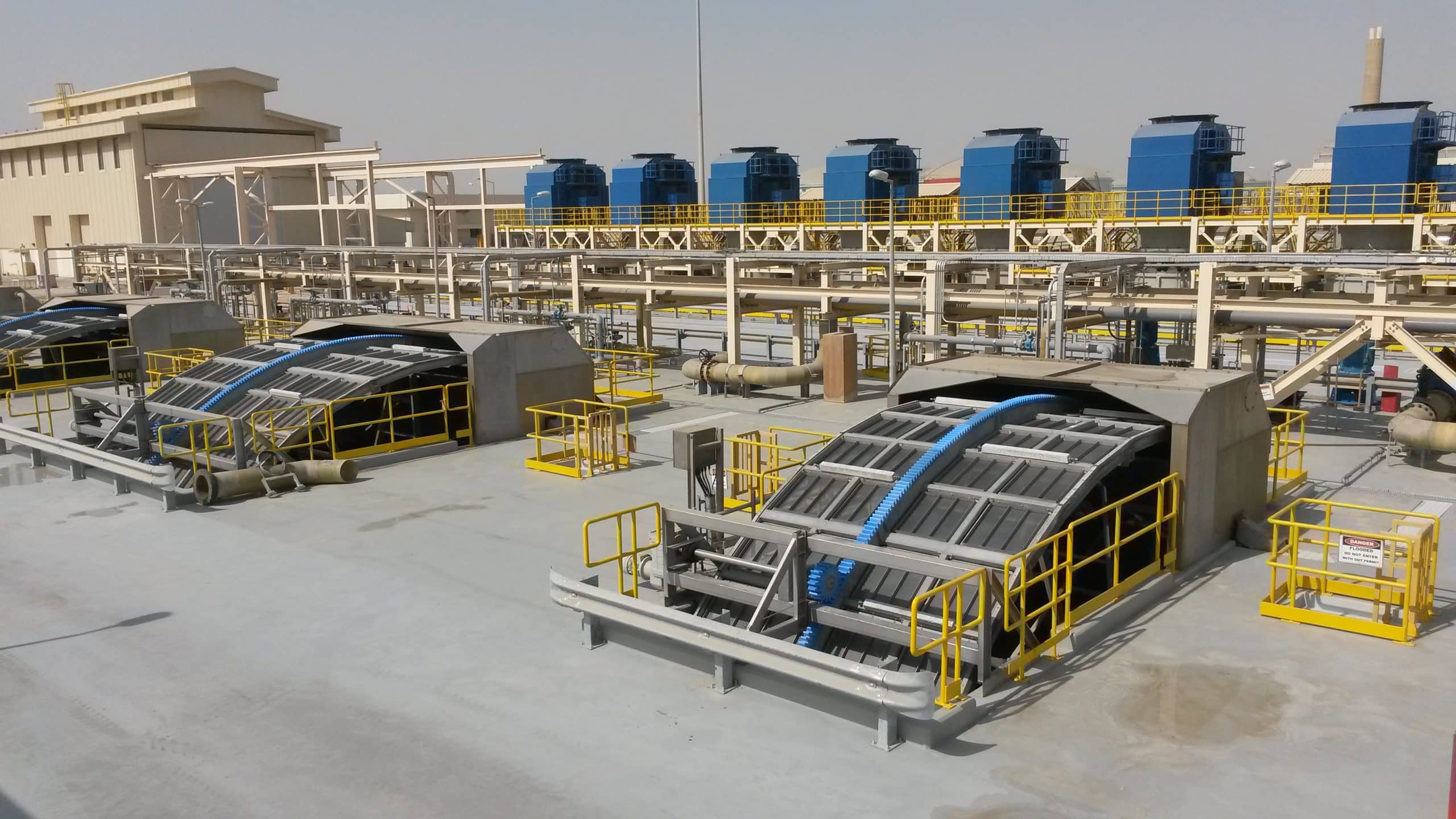
Hubert trommelfilter
Efficiënte en visvriendelijke waterinname voor grote debieten.
Het Hubert trommelfilter is een verticaal roterend filter dat zorgt voor fijne en betrouwbare filtratie in waterinlaatsystemen, met name bij energiecentrales en ontziltingsinstallaties. Met een capaciteit tot 120.000 m³/h per filter biedt dit systeem een robuuste oplossing voor de bescherming van downstreamprocessen tegen vuildeeltjes en grof materiaal.
Dankzij het unieke ontwerp heeft het scherm een extreem stevige structuur, die vervorming voorkomt en een perfecte pasvorm garandeert binnen de inlaatkanalen. Dit maakt filtratie tot 2 mm mogelijk, zelfs onder zware omstandigheden en bij getijverschillen.
Functies
Het trommel is ontworpen voor fijne, continue filtratie van grote waterstromen. Het scherm wordt doorgaans geplaatst in een betonnen kanaal of inlaatput, direct achter een grof voorrooster. Water stroomt radiaal door het draaiende trommelfilter, waarbij vuildeeltjes achterblijven op het roestvaststalen gaas met een maaswijdte vanaf 2 mm.
De trommel draait langzaam om zijn horizontale as en voert de vervuilde filterpanelen cyclisch onder een set hogedruk sproeiers door. Deze spuiten de aangehechte verontreinigingen los van het gaas, waarna het vuil via een geïntegreerd opvangsysteem wordt afgevoerd, zonder dat daar een aparte pomp voor nodig is.
De robuuste constructie zorgt voor een hoge structurele stijfheid en minimale vervorming, zelfs bij grote diameters (tot 20 meter). Hierdoor blijft het filtermedium strak opgespannen en wordt een consistente filtratie gegarandeerd.
Voor toepassingen waar ecologie een rol speelt, kan het scherm worden uitgerust met een visvriendelijk terugwinsysteem. Dit leidt vissen die met de waterstroom meekomen op gecontroleerde wijze naar een veilige afvoergoot.

Voordelen
- Zeer grote filtercapaciteit
- Onderhoudsarm ontwerp
- Lange levensduur
- Bestand tegen abrasief water
- Visvriendelijk ontwerp
- Unieke A-spaakconstructie
- Geen vuilwaterpomp nodig
- Watergesmeerde lagers
Downloads
